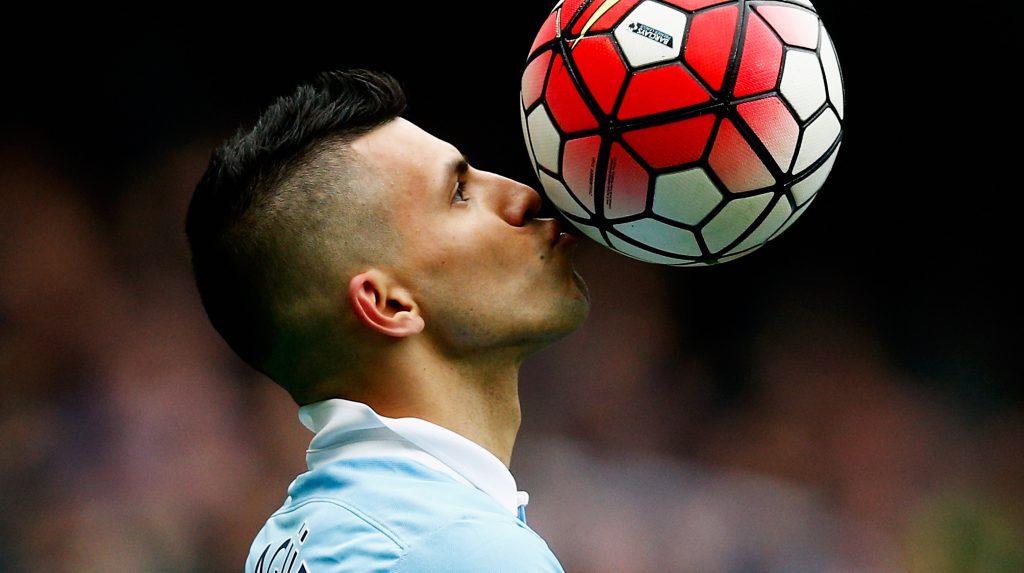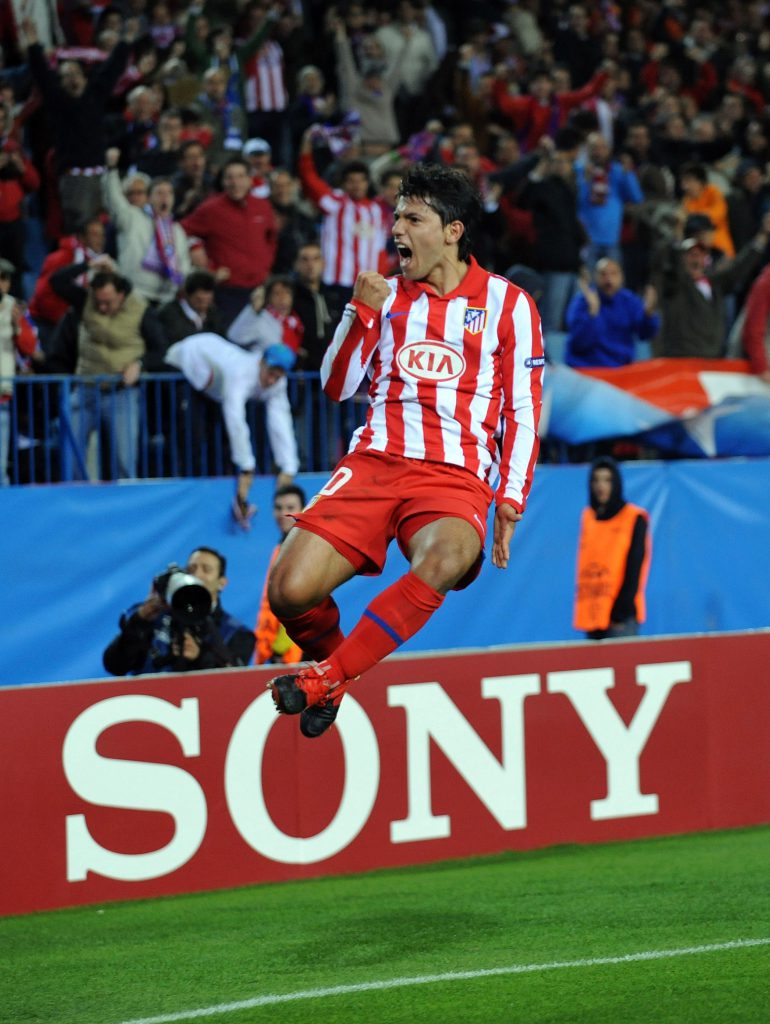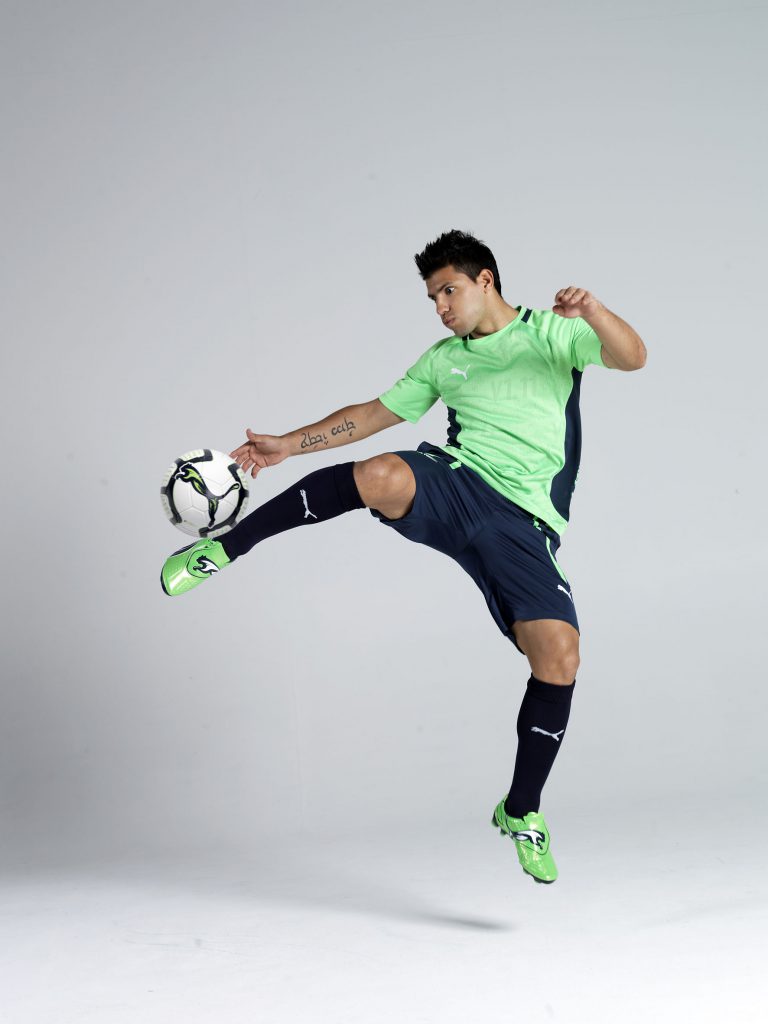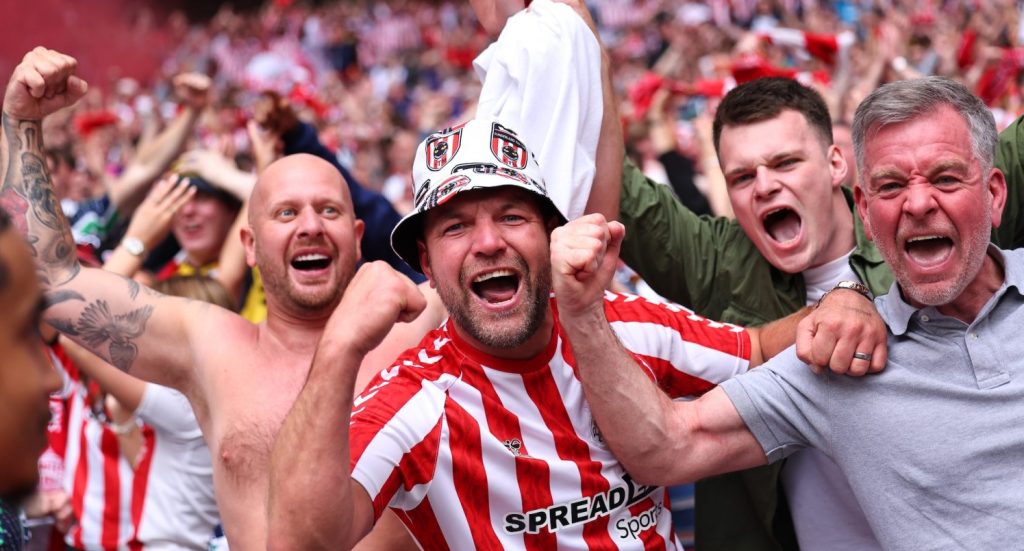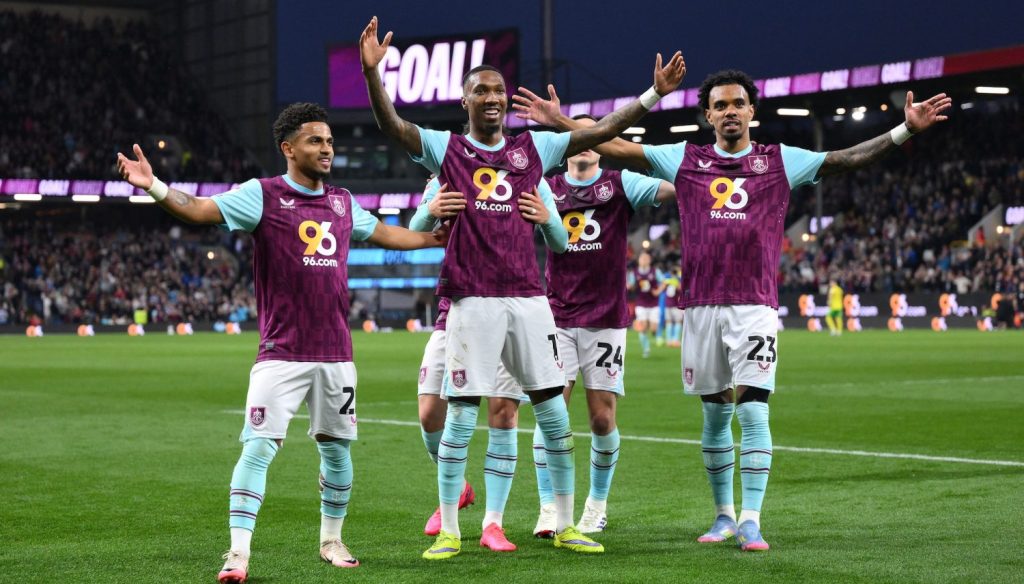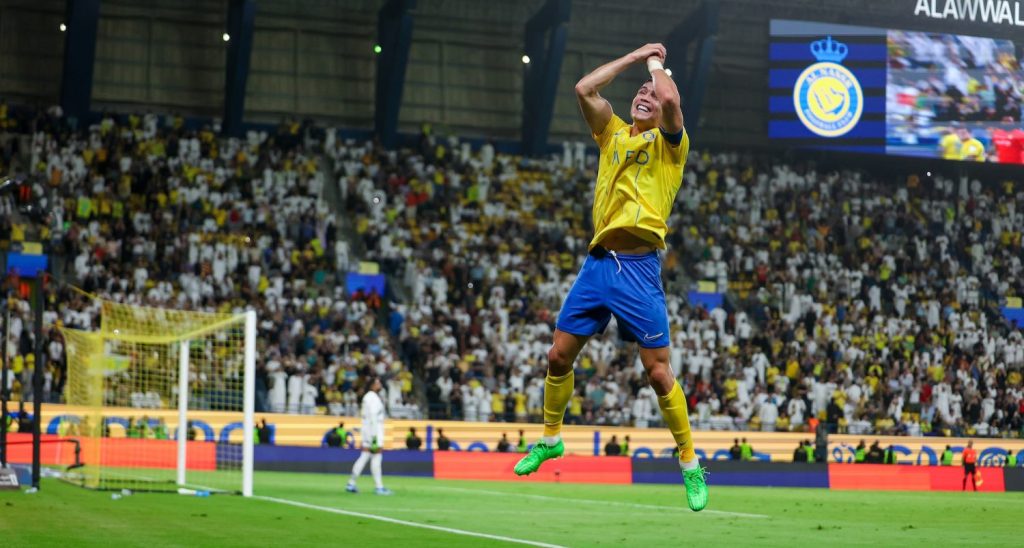Undici in collaborazione con Puma Eyewear presenta #NoCage, il format che raccoglie le storie di 12 personaggi sportivi contemporanei e del passato, che hanno cambiato la storia dello sport superando le barriere e gli ostacoli grazie alla determinazione e alla forza di volontà.
La prima volta ti batte in velocità. La seconda fa finta di partire, poi frena e va dall’altra parte, lasciandoti sul posto. La terza, non aspetta nemmeno: tira in porta. Ogni volta che tocca palla, si ha l’impressione che il campo diventi più grande, che il tempo si cristallizzi, che le possibilità si moltiplichino. Qualche pazzo demiurgo calcistico si è divertito a raccogliere, e poi assemblare, tutte le doti, fisiche e tecniche, che la schiatta dei calciatori offensivi ha partorito e perfezionato nei decenni. Ne è venuto fuori un esperimento futuristico, un prototipo di super-calciatore. Un concentrato di leggerezza e potenza. Qualcosa a cui è stato dato il nome di Sergio “El Kun”Agüero.
New world order
I 173 centimetri di Agüero ne farebbero un attaccante più portato a inventare che a finalizzare, più a suo agio in una posizione ibrida, di galleggiamento tra centrocampo e attacco, che nel cuore dell’area di rigore, più indicata per centravanti con ben altre strutture fisiche. All’inizio della carriera del Kun e nei primi anni europei con l’Atlético Madrid effettivamente era così. I termini da associargli erano quelli di fantasia, creatività, inventiva. Negli anni, però, la straordinaria concretezza e l’eclettismo ne hanno consigliato l’avvicinamento progressivo all’area di rigore, anche e soprattutto senza qualcuno con cui facesse coppia. Una soluzione adottata già dal primo anno a Manchester, con Roberto Mancini, e poi divenuta stabile negli ultimi due anni, dove Agüero ha agito sempre da terminale offensivo del 4-2-3-1 di Manuel Pellegrini. Risultato: 61 gol in un biennio, capocannoniere della Premier 2014/2015 e secondo nella classifica marcatori dell’anno successivo. Le parole da accostargli non sono cambiate, ma se ne sono aggiunte altre, e molte di esse fanno rima con gol.
Sergio Agüero è il giocatore con la miglior media gol nella storia della Premier League: uno ogni 107,1 minuti, davanti a Henry (121,8) e van Nisterlooy (128,2). Nella stessa competizione, è anche il secondo giocatore più rapido a raggiungere quota 100 gol: gli sono servite 147 partite, solo Alan Shearer (con 124) ha saputo far meglio. Numeri incredibili per un giocatore che in Argentina veniva spesso paragonato a Maradona: un diez, più che un nueve. Più che un adattamento, quella di un Agüero è un’evoluzione pienamente riuscita. Il Kun ha accettato le classiche regole d’ingaggio dell’area di rigore: non è un falso nove, non gioca centralmente per svuotare lo spazio davanti alla porta avversaria e favorire l’inserimento dei compagni, ma sfrutta l’area come un centravanti classico, avendo in più dalla sua un bagaglio tecnico superiore. È una minaccia costante perché è in grado di segnare in qualsiasi modo, persino di testa: in questo modo ha segnato ben cinque volte nell’ultima Premier, distinguendosi per elevazione, forza, anticipo, perfetta scelta di tempo. Di conseguenza, il suo raggio d’azione si è precisato nel tempo: da giocatore a tutto campo, con un ruolo ancora indefinito (è il caso di Argentina-Germania ai Mondiali 2010) a giocatore che gravita attorno all’area di rigore e la aggredisce.
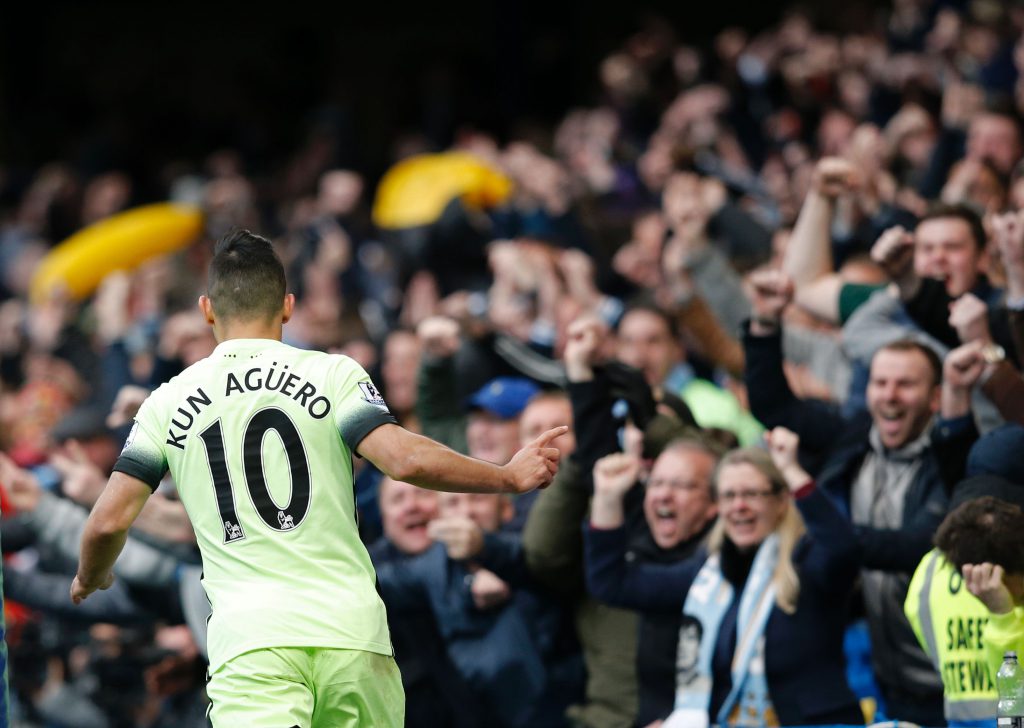
Sergio Agüero esulta dopo una rete realizzata durante il match di Premier League tra Chelsea e Manchester City (Adrian Dennis/Afp/Getty Images)
Giocare con il sole
Sergio Agüero nasce il 2 giugno 1988, nella grande agglomerazione urbana di Buenos Aires, dove la sua famiglia si era trasferita in cerca di fortuna. La miseria, le mancanze, le difficoltà economiche dell’infanzia Sergio non le ha mai dimenticate, anzi le ricorda sempre con orgoglio: «Trascinarsi nel fango, dormire senza un tetto sulla tua testa, raccattare abbastanza soldi da poter sfamare i tuoi figli. So cosa vuol dire tutto questo. Per questo sono orgoglioso di me e della mia famiglia». Il Kun, nomignolo che gli viene dato per la somiglianza con un personaggio di un cartone animato, cresce nella baraccopoli di Los Eucaliptus, un posto di diffusa povertà e alto tasso criminale, dove, certe sere, la cena poteva consistere solo in pane raffermo e matè. «Avevo sempre un pallone tra i piedi. Giocavamo a qualsiasi ora, sotto il sole o con il buio, passavo ore e ore a giocare. Tornavo a casa da scuola, mangiavo, poi bussavano alla porta: “Kun, giochiamo”, mi dicevano. “Va bene”, e io andavo. A volte tornavo a casa di notte, mia madre voleva uccidermi. Tutto per un peso, o per una Coca, era divertente».
Sergio passò in rassegna varie squadre juniores del sud di Buenos Aires e le sue doti lo posero all’attenzione dell’Independiente, che a nove anni lo fece entrare nelle sue giovanili. Lì trovò Ricardo Bochini, leggenda vivente del club, che a distanza di anni ricorda le impressionanti abilità con il pallone di Agüero. Il fatto che ancora oggi non sbagli un controllo è qualcosa che il Kun fa risalire direttamente alla sua infanzia: «Giocavo su un terreno vicino casa, irregolare e accidentato. Su un campo così, dovevi imparare a rimanere in equilibrio e ad aggiustarti al meglio il pallone». Il potrero, il campo in terra battuta, è stato una palestra di vita per Agüero, tecnica e comportamentale. «Una volta, un tipo mi è venuto incontro in scivolata con entrambi i piedi, lasciandomi il segno degli scarpini sul petto. Mi prese un po’ di paura. Da allora, gioco veloce e salto quando mi arrivano da dietro. Ho imparato a giocare con il sole: se c’è sole, ci sono le ombre. Giocando spesso spalle alla porta, quando tocco palla la prima cosa a cui faccio caso è vedere dov’è l’ombra del mio marcatore, per poterlo aggirare dall’altra parte».
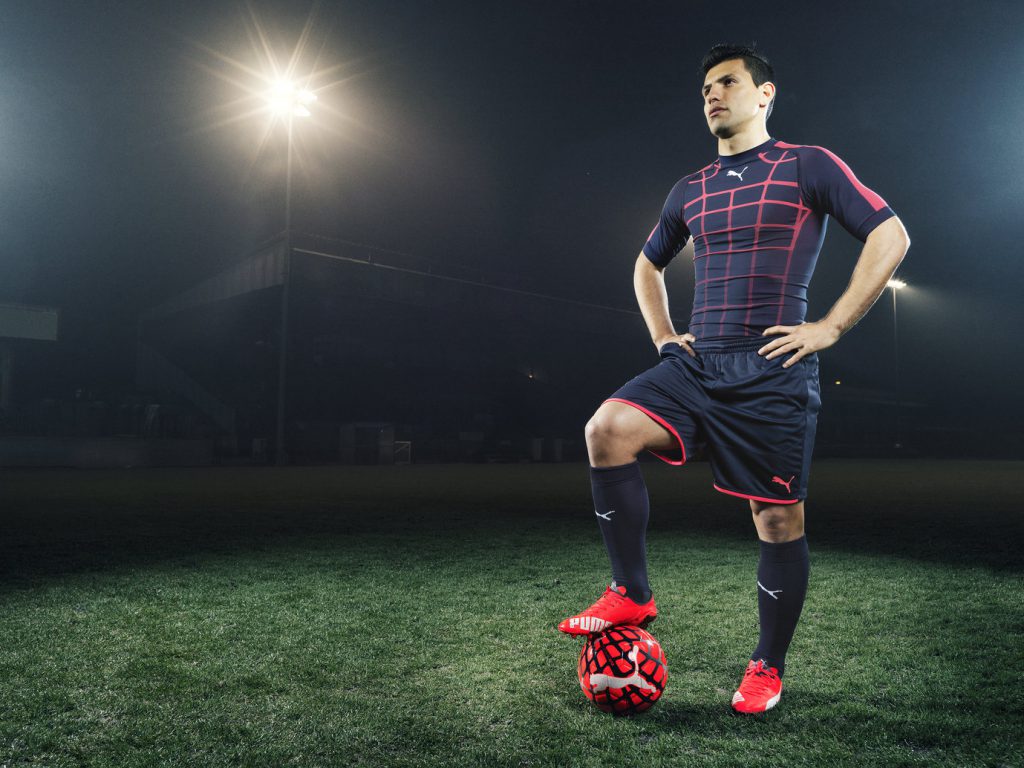
«Un’altra volta, avevo 15, 16 anni, ero il più giovane. C’era gente che di anni ne aveva 40… Avevo già giocato qualche partita in Primera, qualcuno mi conosceva. Da fuori gridavano: “Cortalo, cortalo” (nel senso di fargli male, ndr). Uno mi colpì duramente, e io reagii. Se rimani zitto passi per un boludo. Poi capii che dovevo squagliarmela velocemente». Il debutto di Sergio Agüero in Primera División argentina arriva il 7 luglio 2003, quando il Kun ha 15 anni e 35 giorni: è il più giovane debuttante di sempre, battendo il record che era di Diego Armando Maradona. Il match era Independiente – San Lorenzo, l’allenatore Oscar Ruggeri ricorda quel momento in cui disse a quel piccoletto con la maglia 34 di entrare in campo: «Volevo che si divertisse, e andò bene. In campo fu inalcanzable». Qualche mese dopo, Agüero è diventato un elemento in pianta stabile della prima squadra. Nel 2004 la sua carriera è pienamente decollata: debutta in Copa Libertadores (fissando un altro record di precocità), partecipa ai campionati sudamericani Under 16 con l’Argentina (segnando tre gol in cinque gare) e il 26 novembre, contro l’Estudiantes, segna il suo primo gol da professionista: riceve palla al limite dell’area, stordisce i difensori con un paio di finte di corpo e fa partire un destro potente. «Non avrei mai immaginato tutto questo. Mi sarebbe piaciuto essere un ragazzo normale, stare con i miei amici. Se avessi debuttato a diciotto anni, mi sarei goduto di più quegli anni».
L’11 settembre 2005 il Kun segna un gol indelebile nella storia del calcio argentino contro i rivali del Racing: prende palla a 50 metri dalla porta, addomesticando un lancio lungo. Da lì si terrà stretto il pallone fin quando non l’avrà scaraventato in rete, dopo una corsa delicata, sinuosa, irrefrenabile. Non lo fermano i difensori, e nemmeno un pezzo di carta che gli si appiccica sotto la suola. Quando arriva al limite dell’area di rigore, disorienta il difensore con una sequela di giochi di gambe: accenna a partire verso destra, vira rapidamente sulla sinistra, poi a destra e ancora a sinistra, con il marcatore così spaesato da perdere i punti di riferimento spaziali. Quando si è creato lo spazio per calciare, incrocia con il sinistro: lo stadio ribolle di esaltazione e meraviglia, i compagni di squadra lo issano sulle spalle, come fosse un trofeo da mettere in mostra, da celebrare. Rimane all’Independiente fino all’estate successiva, quando passerà all’Atlético Madrid. Ma non è un addio: il Kun ha eletto il Rojo come la propria casa, ed è lì che tornerà quando chiuderà la sua carriera.
Il gol di Sergio Agüero nel 4 a 0 dell’Independiente al Racing
«I swear you’ll never see anything like this ever again»
Nell’Atlético Agüero rimane per cinque stagioni, vincendo i primi trofei della sua carriera a livello di club: l’Europa League e la Supercoppa Europea, entrambi nel 2010. Anni in cui l’argentino si afferma come crack mondiale, tanto per la qualità delle giocate con cui delizia il pubblico quanto per la capacità di ergersi a leader della squadra. Grazie a lui e ad altri elementi come Forlán, Maxi Rodríguez e Luis García, l’Atlético sta ritrovando uno status da grande squadra, passando da piazzamenti di metà classifica a due quarti posti consecutivi in campionato tra il 2007 e il 2009. Al Calderón Agüero è subito protagonista, ma è con il secondo anno che arriva il salto di qualità: ai sei gol della stagione d’esordio fa seguito un’annata da 19 gol, 27 se si considerano tutte le competizioni. La prima doppietta nella Liga la segna in una partita di gala, contro il Barcellona sconfitto 4-2.
È la sua serata, e lo si vede dal fatto che non sbaglia un colpo, che le giocate sono calibrate al millimetro, come se fossero disegnate da un compasso gigantesco: basti vedere l’assist del 2-1 per Maxi Rodríguez, un tocco d’esterno che nasce da una porzione di campo all’apparenza innocua. Il primo gol è propiziato da una finta di corpo che ne sembra sdoppiare la sagoma ai danni di Gabi Milito, totem dell’Independiente quando lui era ancora un ragazzino. La seconda rete è una conclusione che in seguito esibirà più volte nel corso della sua carriera, tanto da poter essere definito “gol alla Agüero”: un particolare modo di calciare con l’interno verso il palo lontano, mantenendo la palla radente l’erba, in modo da acquisire maggior velocità quando tocca terra. Un calcio pulito e preciso che richiede una sensibilità fuori dal comune: altro esempio nella gara contro il Liverpool nello scorso novembre, un combinato di effetto e potenza che parte dal piede come se fosse stato scoccato da un arco.
L’Atletico di Agüero e Forlán batte il Barcellona per 4 a 2
Nel 2011 Agüero passa al Manchester City: come nel caso dell’Atlético, un’altra squadra che insegue una nobiltà perduta. La tifoseria aspetta la vittoria del campionato da ben 44 anni: il terzo posto della stagione precedente è un buon punto di partenza, ma non basta. Serve un trascinatore, e il popolo della metà blu di Manchester lo scopre nel pomeriggio de 15 agosto. Il City gioca contro lo Swansea, Agüero comincia in panchina. Entra a mezzora dal termine, sono i suoi primi trenta minuti ufficiali con la nuova squadra: l’impatto è terrificante. Non passano nemmeno dieci minuti che ha già segnato, correggendo in rete un passaggio di Richards. Poi alza esponenzialmente il livello di difficoltà. Tre minuti dopo inventa un assist folle per David Silva: lanciato in profondità, scavalca il portiere con un pallonetto, poi, di prima intenzione, serve con l’esterno l’accorrente Silva. Un tocco sopraffino e una visione periferica fuori dall’ordinario. Per finire, segna il 4-0 con una potente conclusione dalla distanza. Procede a quel ritmo forsennato per tutta la stagione: la sua prima annata inglese si chiude con 23 reti in Premier League.
[widegallery][/widegallery]
Resta, però, una missione da portare a termine: quella di riconsegnare ai vecchi fasti una squadra da troppo tempo in balia della superiorità degli odiati rivali cittadini dello United. Ironia della sorte, le due squadre di Manchester arrivano appaiate in classifica all’ultima giornata: per vincere, al City basta battere in casa il Queens Park Rangers. Le cose, però, si mettono male: dopo il vantaggio di Zabaleta, il City va sotto 2-1, mentre lo United sta vincendo la sua partita. Le lacrime dei tifosi iniziano già a sgorgare quando, al 92’, Dzeko segna la rete del pareggio. Ma ne serve ancora un’altra perché il City possa festeggiare un titolo che manca da oltre quattro decenni. «In quei minuti concitati, pensavo che mi sarei ammazzato se non avessimo vinto. Può sembrare esagerato, ma non avrei avuto la forza di andare avanti in caso di insuccesso», dirà poi Agüero. Il tempo scorre. Al termine mancano appena due minuti, ormai. Mentre Nasri tenta invano di battere rapidamente una rimessa che viene assegnata al Qpr, le telecamere vanno a pescare le facce dei tifosi sugli spalti. Hanno le bocche leggermente aperte, la postura del corpo molle. Sono confusi, increduli, paralizzati dal senso acre di beffa. Qualcuno si passa le mani tra i capelli, qualcun altro si copre il volto. Ce n’è uno che si gira, spalle al campo, ha una sciarpa tra le mani, la sbatte più volte con violenza sul seggiolino, la frustrazione al massimo.
Qualche tempo dopo, Agüero dirà, spiegando il suo attaccamento al City: «Il canto dei tifosi “We’ll fight to the end” non è solo un canto. È un simbolo di un club che non molla mai, che non si dà mai per vinto». In quel momento il Kun, sul baratro della disperazione, non si è ancora dato per vinto. Mentre tutti vanno in area di rigore, a provare a spizzare una palla con la forza dell’ineluttabile più che con la logica, Agüero arretra, chiama palla. La vuole decidere lui, come fanno certi giocatori di basket a pochi istanti dalla sirena finale con il punteggio in equilibrio. Riceve palla, dà un’occhiata in avanti, serve Balotelli e poi si butta in avanti. Supera gli avversari a doppia velocità, mosso da una consapevolezza diversa, totalizzante. «Ho colpito la palla più forte possibile. Ricordo il rumore della sfera sulla parte posteriore della rete, un rombo assordante e io che divento matto». Martin Tyler, voce di Sky Sports, proromperà in una celebrazione che conoscerà una dilagante notorietà in Inghilterra: «AGUEROOOOOOOO…. I swear you’ll never see anything like this ever again».
La rete che consegna la Premier nelle mani del City
Quello che a molti non era riuscito in 44 anni, ad Agüero è riuscito al primo colpo. Da allora, il Kun ha continuato a vincere con il City: nel 2014 è arrivata un’altra Premier, e poi due Coppe di Lega inglese, l’ultima quest’anno. Il Kun ha continuato a segnare a ripetizione, dimostrando, all’apice della sua carriera, di essere un giocatore completo, sostanziale, decisivo. Possiede tutte le virtù cardinali di un giocatore di calcio: efficacia sotto rete, velocità, controllo, fantasia, dribbling, senza conoscere punti deboli. Quando sembra che abbia terminato i modi di sorprendere, ecco che ne scova di nuovi. Lo scorso 3 ottobre, nella gara di Premier contro il Newcastle, ha segnato cinque gol nell’arco di appena venti minuti. Dando prova della sua poliedricità offensiva: se il primo e il quinto gol sono da attaccante puro, capace di fiutare il gol prima che gli arrivi la palla anticipando il movimento dei difensori, il quarto gol nasce con una sua partenza da dietro, mettendo ancora in mostra quel suo calcio particolare e una velocità d’esecuzione impressionante. Il terzo gol è una sintesi tra la capacità di spaccare in due la difesa con uno scatto deciso e l’abilità del tocco morbido, uno scavetto che beffa il portiere avversario.
A 28 anni appena compiuti, non gli resta che regalare una gioia al suo Paese. Come gli è accaduto in passato, dovrà risvegliare un “gigante dormiente”: spetterà a lui trascinare nella Copa América del Centenario l’Argentina, che non vince un grande trofeo da ventitré anni. Ha già trionfato nelle squadre Under dell’Albiceleste, con la vittoria di due Mondiali Under 20, Olanda 2005 e Canada 2007. In Canada è stato il miglior marcatore con sei reti (di cui una in finale) ed è stato eletto miglior giocatore del torneo. L’anno dopo, alle Olimpiadi di Pechino, ha vinto l’oro dopo essere stato decisivo in semifinale con una doppietta contro il Brasile. Ora è arrivato il momento di riuscirci con la Nazionale maggiore. La storia è fatta per essere cambiata.
10 delle migliori marcature di Sergio in maglia Citizens
Visita il sito di Puma Eyewear.
#NoCage #Pumaeyewear

